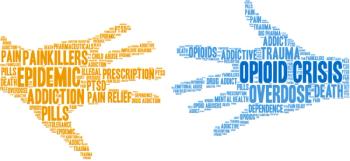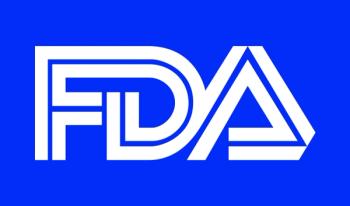
Enterprise imaging platforms would enable organizations to consistently and optimally capture, index, manage, store, distribute, view, exchange and analyze all clinical imaging and multimedia content, enhancing patients’ electronic health records.

Enterprise imaging platforms would enable organizations to consistently and optimally capture, index, manage, store, distribute, view, exchange and analyze all clinical imaging and multimedia content, enhancing patients’ electronic health records.

Pediatric severe asthma is a heterogeneous disease and based on data, a multi-disciplinary approach can improve the diagnosis and management of these children.

As of early this year, as many as 23 million Americans may have developed long COVID, in which symptoms persist four or more weeks after first being infected with the virus. The condition is likely to have additional long-term effects that are not yet clear. However, the U.S. has begun to obtain a glimpse of long COVID’s far-reaching impact on those who suffer from it - and the picture is rather disturbing.

Big tech and its access to our data is a juicy target. But policy makers need to be careful or they will upend interoperability and turn back the clock on American healthcare.

Patients with cancer who have a poor prognosis may face obstacles in accessing critical pain medications.

Patients with lower heart rate variability during sleep may suffer from insomnia, the study found.

It is not yet clear whether Alzheimer’s causes excessive napping or vice versa, but the study’s authors say the questions are worthy of additional investigation.

Patients with obstructive sleep apnea who used continuous positive airway pressure devices were able to slow down their epigenetic age acceleration.

Dr. Caroline Carney of Magellan Healthcare discusses the psychedelics in the pipeline for treating mental health conditions.

Last month, the Centers for Disease Control and Prevention shared a draft update to its Clinical Practice Guideline for Prescribing Opioids. The proposed revision comes as the nation’s overdose death rate reaches an all-time high, fueled largely by the economic and psychological strains and lack of healthcare access caused by COVID-19.

As personalized medicine grows, so does the need for specialized management of laboratory testing.

In COVID-19 news, FDA issued an EUA for COVID-19 breath tests. The agency also okayed a third biosimilar of Avastin, extended the review of REGEN-COV, cleared first generic of Elcys, and accepted the BLA for Rolontis.

In this week's episode, Briana Contreras, editor of Managed Healthcare Executive, spoke with Dr. Paige Kilian, chief medical officer at Inovalon. In the discussion, Dr. Kilian broke down the current issues health plans are facing when it comes to risk adjustment and how it’s affecting members of these plans. She also shared some solutions that can help plans improve risk adjustment and quality programs with one in particular being health plans identifying care gaps through data and analytics.

A new report says the nation must take action to bring about the necessary changes. An industry group says it’s the most comprehensive study of nursing homes in more than three decades.

Fabric Health is bringing healthcare services to laundromats in Philadelphia and Pittsburgh. Other organizations are using barbershops and churches to deliver healthcare services and messages.

Five phenotype clusters were discovered to be associated with the exacerbation, or worsening, of chronic inflammatory airway diseases of asthma and chronic obstructive pulmonary disease (COPD), according to a recent study published in PLOS ONE.

Although health systems say they deliver better health outcomes and lower costs, research on how physicians are compensated suggest otherwise.

Patients are likely to continue to choose to recover at home rather than go to skilled nursing facilities, according to a new report by Trella Health.

ICER said Bluebird Bio could use an outcome-based pricing plan of five yearly payments totaling $2.1 million for patients treated with beti-cel who no longer need blood transfusions.

Findings published in the April issue of Health Affairs show a huge jump in telehealth visits, but the researchers also detected that a pattern that suggests that people with conditions such as schizophrenia did not make the switch to telehealth as readily as people with anxiety and some other disorders.

“The most remarkable change in patterns of health during the (past) century has been the largely successful conquest of infectious diseases,” wrote Allan Brandt, Harvard medical historian, in “No Magic Bullet: A Social History of Venereal Disease in the United States Since 1880."


COVID-19 and overdoses were the main reasons 2021 was the deadliest year in U.S. history.

Cuban, an investor on “Shark Tank” and owner of the NBA’s Dallas Mavericks, has launched a namesake online pharmacy that says it will have transparent pricing and will bypass pharmacy benefit managers.

Interviews with caregivers of children with asthma highlight the ways they identify and mitigate asthma triggers across different places, such as home, neighborhoods, and schools.

Review of 28 studies suggests role for CBD and THC as therapy for MS but evidence base needs to be stronger.

Humans still have a role, but in a recent survey, about half of insurers said they are using AI to help cut down on fraud, waste and abuse.

The standard of care does not control chronic rhinosinusitis with nasal polyps for a third of patients, but approved biologics may improve quality of life (QoL).

The race is on to be the first-approved Bruton tyrosine kinase inhibitor. Meanwhile, trials are underway to test statins and metformin as treatments for multiple sclerosis.

The FDA approves novel therapy for schizophrenia and bipolar and grants accelerated approval to treat rare disorder. The agency also accepted the sBLA and has granted priority review for Actemra or the treatment of COVID-19 and has extended the PDUFA date for vutrisiran.